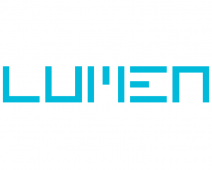Dentsu Acquires Aegis: The Ripple Effect Of The Big Agency Consolidation
by Ciaran O'Kane on 12th Jul 2012 in News


Aegis has been on the market for a while, allegedly. First, there was talk about Havas buying - or maybe even Publicis or WPP. However in the end it was Dentsu, the cashed-up Japanese media-buying behemoth, that finally took Aegis out for £3.2 billion in cash. Although not obvious yet, this deal is likely to have serious ramifications for not just the advertising industry, but also our own cosseted ad tech world as well.
The Trading Desk Solution
Aegis has been quietly rolling out its trading desk into the market. Quietly. No press. Just getting on with it. Various vendors, the usual suspects, have been been in the pitching process with Aegis’ trading desk entity for some time, but you wonder how this Dentsu acquisition will change the approach currently being taken by Aegis. Dentsu currently own IgnitionOne, a multi-platform solution. It has a DSP, a search-buying platform and a social-buying solution. Nothing will happen much in the short term, but you wonder what ripple effect is this likely to have on existing vendors when the inevitable strategic review is done. Will IgnitionOne get that all-important mandate when Dentsu looks to shore things up across the group?
What Effect Will Consolidation Have On The Agency Stack?
It's interesting to see the unveiling strategies of the big-tier global agencies, and what effect it will have on the "agency stack". If you look at the current agency landscape, and agency strategy around the "stack" you can see a clear trend developing. Some are aligning with Google, but most of the big players are building "internal" stacks.
If we look at WPP, we see a clear strategy to be the master of its own destiny. Xaxis is the buying hub for WPP's ambitious play in the digital ad space. By operating its own DSP technology (rumour abounds about who powers it, but it isn't Google) as well as running a quasi-network solution, WPP is looking to bypass the Google stack.
You could argue that with the Aegis acquisition another big agency group is likely to implement an internal stack. With Publicis outsourcing its tech requirements to Google, that leaves Havas and Omnicom without a clear strategy. Will this be the start of consolidation? Could one of these two take out one of the three enterprise DSP solutions - Turn, MediaMath or DataXu? Or maybe do a roll up with the likes of Mediamind?
And let's not forget about the European solutions: Adform could be bought at a snip compared to some of the mad valuations in the US; and if you had a really really smart M&A guy why not buy IPONWEB, and let its development team build out the agency's future stack.
Eastern Marketing Giants Flexing Their Muscle
This is going to be an interesting trend. If you are to believe the US trade publications, you'd think that US digital companies were about to take over the APAC market wholesale. The Aegis deal is clearly more than just digital, but we are talking about the digital advertising space here, so let's just focus on this. Dentsu has been on the acquisition trail for some time, and have been eyeing up how they can compete with the Big Five. Now Dentsu has Aegis; it is now a global player.
How will Hakuhodo, Dentsu's big Japanese rival, react to this audacious move? The Japanese are looking to invest in international markets, trying to leverage their cash and strength of their currency. The future growth numbers for the Japanese won't be setting the world alight. Don't be surprised to see more acquisitions of agencies and ad tech in Europe, US, Brazil and Asia by the Japanese. It'll be interesting when the Chinese market starts to heat up and new domestic players emerge.
Consolidation in the agency market is going to have a knock-on effect on the ad tech space. Being a tech provider might become increasingly difficult as the agencies hoover up the vendors they require for aggregation and optimisation. Other agency groups might start buying, once Dentsu integrates its own O&O tech across its agency groups. But who will buy? Much of this M&A activity in the short term is likely to come from Japanese and Asian players - as they look to access high growth markets. Are we in for a big consolidation drive across the industry?
Ad NetworkAdvertiserAPACDisplayExchangeTradingTrading Desk







Follow ExchangeWire